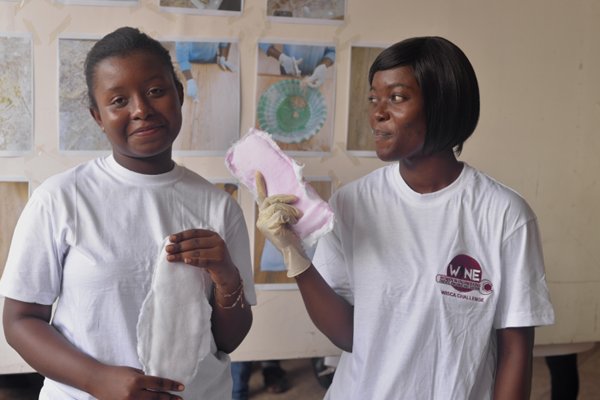Meet the KNUST students making sanitary pads from banana stem
- Two Ghanaian students develop cheaper pad from banana stem
- Emily Otoo-Quayson and Matilda Sampong, both of Kwame Nkrumah University of Science and Technology, are brains behind the innovation
Two Ghanaian university students have showed great innovation to develop sanitary pads from banana stem.
Emily Otoo-Quayson and Matilda Sampong are both students of Kwame Nkrumah University of Science and Technology (KNUST).
The two ladies aim to solve the problem of majority of girls who cannot afford sanitary pads during menstruation.

Source: UGC
READ ALSO: Robbers attack policeman on N1 and bolt with GHC80K
They have, therefore, taken it upon themselves to produce pads from banana stem, which are relatively cheaper.
Otoo-Quayson is a final year Civil Engineering student while Matilda Sampong is in the second year pursuing Business Administration.
“According to statistics about 95% of girls in rural areas miss classes during this period and we thought to do something about this,” Otoo-Quayson said, as quoted by Myjoyonline.
A study by the Human Rights Watch disclosed that one in 10 girls in Africa skips school during menstruation because they cannot afford sanitary pad.
This is as a result of the high level of poverty in the many rural communities on the continent.
The two KNUST students not only want to make sanitary pads cheaper, but also safer for all girls.
Many sanitary pads are made of plastic materials and contain a cellulose gel called dioxin, which can lead to organ damage.
“This dioxin is harmful to the female reproductive system so we decided to develop a banana sanitary pad to make the pads healthful.”
PAY ATTENTION: All The Celebrities That Attended Meghan Markle's Glamorous Baby Shower
They explained that banana and plantain stem have proven to be effective absorbents, insisting they are safer.
“In the Western world they use these stems to produce paper bags and diapers but it’s not been used to produce sanitary pads.
“The conventional ones you find on the market, the least is 5 cedis but for these ones because of the materials we used, it’s priced at 2 cedis,” they added.
Yenkasa: Between males and females, which group gossips more?| #Yencomgh
READ ALSO: Major Mahama wasn't an armed robber — Witness
Know someone who is extremely talented and needs recognition?
Your stories and photos are always welcome. Get interactive via our Facebook page.
Source: YEN.com.gh
